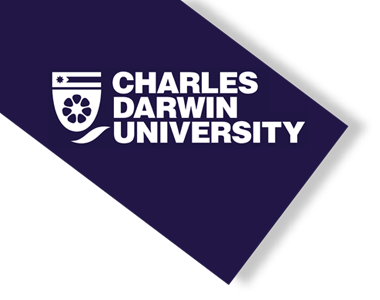Bachelor of Commerce/Bachelor of Laws
Charles Darwin University
About
This combined degree course provides students with the opportunity to major in a commerce program in conjunction with legal studies with a view to satisfying the academic requirements for admission into the legal profession and, depending on the specialisation completed in the commerce program, possibly the accounting profession.
The Law course aims to provide knowledge of the legal system and legal principles, and to cultivate a capacity for legal research, analysis and communication.
The course also deals with theoretical perspectives on the law and encourages an appreciation of legal issues of special significance to the Northern Territory, including Aboriginal legal issues.
The Commerce course caters for individuals working in or intending to work in commerce or government in fields such as economics, accounting, management, entrepreneurship, business administration, hospitality or marketing.
It is of particular relevance to Australian or international students seeking membership of Australian professional bodies in these or related fields.
The program provides students with the career and professional skills needed in a rapidly changing business environment.
It allows for flexibility of study and prepares students for careers in a variety of business fields.
In addition, communication, presentation and problem-solving skills are emphasised.
Graduates of this combined degree are awarded both the Bachelor of Commerce and the Bachelor of Laws.
Structure
Common(2 units) - 20
Common units totalling 20 credit points as detailed below
CUC107
Plus either:
CUC100
or
CUC106
Select
Common Units
t
Compulsory Core(23 units) - 230
Compulsory Core units totalling 230 credit points (8 Commerce and 15 Law) as detailed below:
Commerce Core - 8 units totalling 80 credit points
BCO101
(CMM101 replaced BCO102 from 2015 and has been recoded to MAN105 from 2016)
(CMA101 replaced BCO103 from 2015 and has been recoded to ACT101 with a new title from 2016) (ACT101 recoded to ACT205 2018)
(CME101 replaced BCO104 from 2015 and has been recoded to ECO105 from 2015)
(CMQ101 replaced BCO105 from 2015 and has been recoded to QAB105 from 2016)
(recoded to BUS201 2018)
(recoded to BUS303 2018)
(last offering in 2018)
Law Core - 15 units totalling 150 credit points
LWZ115
(replaces LWZ111 from 2016 which replaced LWZ100A and LWZ100B from 2015)
LWZ114
LWZ116
LWZ118
LWZ204
(replaces LWZ202 and LWZ203 from 2015)
LWZ210
LWZ211
LWZ223
LWZ304
(replaces LWZ202 and LWZ312 from 2015)
LWZ315
LWZ316
LWZ317
LWZ320
Students who have completed the 13-14 law units listed above must also complete an additional 10-20cp of law specialist electives to make up the 150CP
Specialist Electives(15 units) - 150
Complete units totalling 150 credit points (6 Commerce and 9 Law) as follows:
Commerce Specialist Electives – 6 units totalling 60 credit points selected from one of the six Specialisations detailed below:
ACCOUNTING
Complete both units at 200 level:
(unit title change as of 2013)
(recoded to ACT201 from 2016)
(unit title change as of 2013) (recoded to ACT202 from 2016)
Plus one of the following units at 200 level:
(recoded to FIN205 from 2016)
(replaced by ACT204 from 2016)
Complete the following unit at 300 level:
(recoded to ACT301 from 2016)
Plus one of the following units at 300 level:
(recoded to ACT304 from 2016)
(unit title change as of 2013) (recoded to TAX305 from 2016)
Plus one of the following units at 300 level:
(recoded to ACT302 from 2016)
(recoded to ACT305 from 2016)
ECONOMICS
All three units at 200 level:
(replaced by ECO207 2018)
(recoded to ECO204 2018)
(recoded to ECO205 2018)
Plus all three units at 300 level:
(replaced by ECO308 2018)
ECO305
(replaced by ECO309 2018)
MANAGEMENT Any three units at 200 level:
(unit title change as of 2013) (replaced by MAN310 2018)
(recoded to HRM201 2018)
MAN212
PMO201
Plus any three units at 300 level:
(recoded to HRM303 2018)
MAN306
(new title Business Strategy 2018)
MAN308
(recoded to MAN206 2018)
MARKETING Any three units at 200 level:
MKT201
MKT202
MKT203
PMO201
Plus all three units at 300 level:
MKT303
MKT304
(replaced by MAN306 from 2019)
HOSPITALITY All three units at 200 level:
MAN212
PMO201
(not offered)
Plus all three units at 300 level:
MKT304
MAN308
(not offered)
BUSINESS ADMINISTRATION
Law Specialist Electives – 9 units totalling 90 credit points selected from the units listed below:
Note:
.
Students must complete either LWS221
(replaced by LWA207 from 2019) or LWS320. Students are not precluded from completing both units.
LWA207
(no longer avail from 2016)
Specialist Electives to be offered each year
(replaced by TAX305 from 2016)
LWA112
LWA210
(title change from 2016)
(no longer avail from 2016)
(next offered 2021)
(replaced by LWA317 from 2016)
Specialist Electives offered in alternate years
(no longer avail from 2016)
(no longer avail from 2016)
(no longer avail from 2016)
(no longer avail from 2016)
(no longer avail from 2016)
(recoded
LWA111
2016)
(recoded LWA110 2016)
(offered each year)
(recoded
LWA221
2016)
LWA316
LWA317
(replaced by LWA321 2016)
(next offered 2021)
(next offered 2021)
LWA329
(no longer avail from 2016)
(no longer avail from 2016)
General Electives - 0
There are no elective Units for this course
Total Credit Points - 400
Entry requirements
Admission requirements are met by one of the following: Successful completion of the Northern Territory Certificate of Education and Training (or equivalent) and the awarding of an Australian Tertiary Admissions Rank (ATAR) of at least 60*. Successful completion of a national qualification at Certificate IV level or higher. Successful completion of at least 0.5 year of full-time study (or equivalent) of a higher education degree/diploma. Overseas secondary or tertiary qualifications considered equivalent to the above Australian qualifications. Attainment of a STAT Multiple Choice score of 135 (or a score of 145 if prior to May 2010). Successful completion of the Tertiary Enabling Program, the Preparation for Tertiary Success courses, or other recognised tertiary preparation course. Submission of an acceptable personal competencies statement and/or employment experience. * After any applicable adjustment factors have been applied.
Institution
